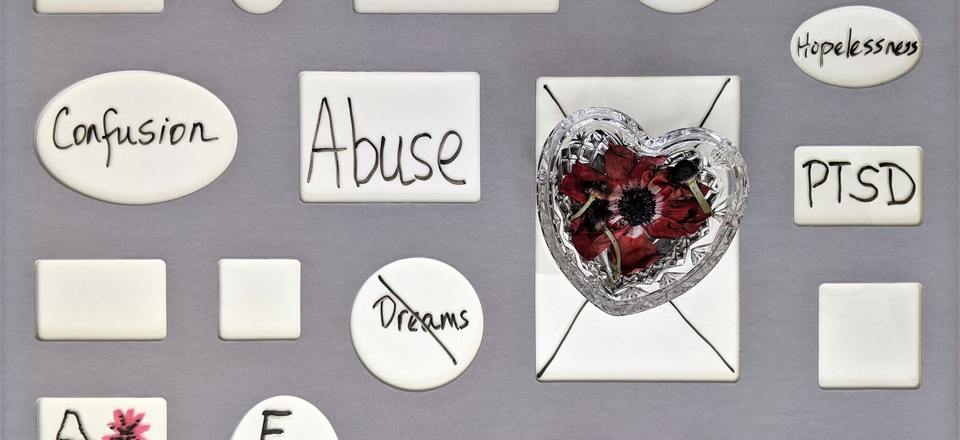Unresolved Trauma - Mental and Physical Well-being. How Your Biography
Society has come to associate trauma with violence. We often think that trauma only happens in situations where weapons are involved, physical abuse or during war. The truth is that we experience trauma at any moment that is deeply distressing or disturbing to us. We also experience trauma at times of serious physical injuries or when we have life-threatening illnesses.
Any situation we experience that results in a fight, flight or freeze response for our survival, is a traumatic experience.
Often, we do not associate the diagnosis of cancer, a serious heart condition or injury as something that could lead to long-lasting trauma effects. In a world where we are daily bombarded with information about these severe conditions, we have become desensitized to the emotional effects of these illnesses at the time of the diagnosis. We expect it as part of the human experience and something we deal with by taking prescribed medication.
When we experience trauma, we immediately enter fear and stress.
So, what all are examples of traumatic experiences:
• I child that is or perceives him/herself as “lost” in a shop, at a fair, after school and mom is not there to collect them.
• The traumatic loss of a loved one - murder, loss at sea, horrific car accidents.
• Divorce - specifically the partner who did not see it coming.
• Retrenchment, losing your business. Any situation where your income is no longer secure, and you have no idea of how to proceed.
• These are only a few examples of everyday life where we might experience trauma.
In very simplistic, layman's terms, our sympathetic nervous system kicks in and we set our Fight-Flight-Freeze response into motion. As a small child, who experiences violence in the home, lost a parent at a young age, or sometimes a beloved pet, these experiences lead to intense helplessness. The same for a mother with small children in an abusive relationship who has no means of escaping the circumstances. People who have been diagnosed with grave medical conditions, also experience helplessness. This activates the “Freeze” response of survival. Let me sit quietly, not make a sound or take decisions, because I have no power in this situation and I do not know what next to do. This is in comparison to the responses where we fight for our life, or we run away to a safe place.
How often have we heard: “You did the right thing not to fight or run”? That does not mean we have escaped the trauma. In fact, we now recognize the huge impact this response has on our psyche - some believe more so than Fight or Flight.
This powerlessness plays out in many aspects of our future. Many of us have come across people, perhaps we recognize it even in ourselves, with characteristics such as:
• Being anxious in an aggressive environment - people who do not like heated discussions.
• Over thinking and controlling of situations - people who always must have all the information before they make any decisions.
• Helplessness - people who always wait for permission before they do anything.
• Fragile - people who we protect from situations or information because we know they will not be able to handle it. We break it to them softly and slowly.
• Impulsive non-related impulses - people who act out of character for the current situation, like bursting into tears, becoming aggressive, anxious, etc. in situations that the average person will perceive as normal.
• Criticism and self-shame - people who are overly critical of others and themselves.
• People who show the potential to grow and reach top business positions, but lack emotional intelligence.
• Often apathy and depression are diagnosed and treated in later stages of life.
Helplessness causes pain and suffering emotionally. It leads to severely diminished self-esteem. Helplessness has a major impact on a person’s ability to make decisions. In turn, this adds to the feeling of stress, anxiety, and stress, which in turn leads to depression, just to start the cycle again.
We feel or experience powerlessness as fear, anger, and distrust. These emotions never leave our bodies, unless we understand the effects of the emotions on our physical well-being, and we take active steps to release the trauma on a cellular level.
What science (epigenetics) shows today, is that we create an environment within ourselves that is either conducive to a healthy body - mind, body, and soul - or that results in illnesses - chronic or “sudden” serious illnesses.
We perpetuate the influence of unresolved trauma and therefore increase the effect it has on the body. Our constant thoughts about a traumatic situation add to the physical responses of our sympathetic nervous system. These continuous thoughts become habits which set in as beliefs. We run lives by the beliefs we hold. It is at this point that our “biography becomes our biology”.
An unresolved trauma has set us in a direction of limiting beliefs, which has resulted in our biology becoming “accustomed” to certain emotions. These emotions are the consequence of past experiences and eventually lead to our emotional condition, or addiction, and will result in a physical condition.
How do we go about resolving our unresolved trauma?
Most people are not even aware that they carry unresolved trauma within. They have accepted their “characteristics” as who they are. Often these people will carry on for years, sometimes decades, before they realise that something is “not right”. Memories might be triggered; they might become aware that certain situations are huge triggers, and they start asking why. And then, some are completely aware of the “shame” or hurt that they are carrying, and they do not want to relive it. It does not matter the “category” that you find yourself under, techniques today are so different from what was used in the past 50 years, that very un-invasive techniques can help you to release these blockages and help you to open new neuropathways (neuroplasticity) to build new and empowering beliefs, resulting in new thought processes.
1. Responsibility. Own it. You do not need to know what it is that you own, you must however be open and available to the idea that there is something that is preventing you from being the best version of who you are. If you cannot admit it, and take responsibility, you will not change.
2. Release the fear. We become so accustomed to our negative emotions, it is really like an addiction, because it is what we know. We fear the unknown. We have to take responsibility and who will I then be? We fear not fitting in any longer and we fear our own power. If I had the power to let this go and I did not, how “evil” am I then to myself?
3. Find a therapist. The right coach, facilitator, or practitioner will guide you and teach you different techniques and concepts, that will empower you to make this shift in your life. Many of the techniques I work with are very quiet. Personally, I am not interested in the “story” that brought you to this point, I am looking for the emotion running and the beliefs that limit your life and how we can release and delete that so that you hold the power. The focus is fast moving from the story, that needs a plaster (medication), to the cause of your current situation. And that is NOT the story - it is the emotional baggage and thought patterns that are the cause of your current situation. The story is only a “prop” in the story of your life. This is your biography, and it will affect your biology.
4. Be ready for magic to happen. It sounds crazy, everyone wants magic. If you are not ready to let go of the past and allow for a different way to enter, the magic cannot happen. You cannot change your future through the same habits and thought patterns that brought you to your limiting beliefs and thoughts. Magic is ready and waiting. Are you ready?
The questions to ask are: how attached am I to my current situation that is preventing me from living the kind of life I desire? Am I ready to change it and become the true me? If you are ready, there will be a coach or practitioner who can help you. Reach out, what do you have to lose?
Sue Leppan
Transformation Life Coach
Energy Codes Facilitator
NLP Practitioner
B.E.S.T. Practitioner











































